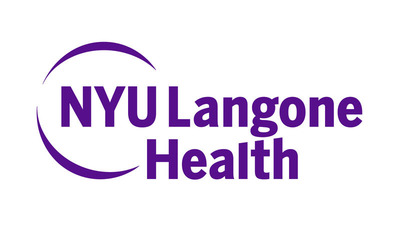

NEW ORLEANS, March 6, 2018 /PRNewswire-USNewswire/ -- People with undiagnosed neurocognitive deficits are undergoing hip and knee replacements at high rates and are more likely to have poorer short-term outcomes after surgery, according to new research led by orthopedic surgeons at NYU Langone Health.

The study of patients who were screened with cognitive assessments prior to undergoing a total joint arthroplasty, or replacement, showed that those who scored more poorly on the tests were significantly more likely to fail to progress in rehabilitation and to require admission into the intensive care unit (ICU).
"Our data suggest that neurocognitive impairment is highly prevalent in older individuals who are set to undergo total joint replacements, and we suspect that rates may be underestimated nationwide," says James Slover, MD, an associate professor of orthopedic surgery at NYU School of Medicine, and an attending orthopedic surgeon and clinical site chief at NYU Langone Orthopedic Hospital. "These patients required more hospital resources and progressed more slowly with physical therapy after surgery. Therefore, it is critical that strategies are developed to screen these patients and protocols are put in place to allocate more support to them before and after surgery."
The research will be presented Thursday, March 8, 2018, in a poster session at the American Academy of Orthopaedic Surgeons (AAOS) 2018 Annual Meeting in New Orleans, Louisiana. The findings were also published in the February 2018 issue of the Journal of Arthroplasty.
Screening Patients Preoperatively May Yield Targets for Intervention
Total joint replacements are performed on a wide array of individuals, including an older population who may have significant medical comorbidities. Previous research suggests that neurocognitive impairment before any major surgery may raise risk for increased complications and worse outcomes, but this phenomenon has not been well-studied in patients undergoing joint replacements. More than 645,000 people undergo a total knee replacement each year, and more than 306,000 undergo a total hip replacement annually, according to the AAOS.
Dr. Slover and colleagues prospectively screened more than 100 patients who were set to undergo total joint replacements at NYU Langone Orthopedic Hospital for neurocognitive impairment using three validated cognitive tests: a grooved pegboard test for dexterity and coordination for both a dominant and nondominant hand, and an auditory verbal learning test for memory function.
Ninety-nine completed all screening tests before undergoing joint replacements and were followed for at least one year. Patients with previously diagnosed neurocognitive conditions, including Alzheimer's and other dementias, were excluded from the study.
The researchers found that 53 percent of patients (or 53 out of 99) had neurocognitive deficits identified on at least one of the three tests: There was a significant prevalence of neurocognitive impairment in patients between the ages of 50 and 59 (20 out of 34), though the highest proportion was reported in patients 70 years of age or older (62 percent, or 13 out of 21 patients screened). Depression was linked to higher likelihood of worse neurocognitive scores, with 77 percent (13 of 17) patients with depression testing positive for neurocognitive impairment on any test, versus 48 percent (38 of 79) of non-depressed patients.
Among patients with neurocognitive impairment, statistically significant differences were noted: 48 percent required ICU admission and medical response team consults, and 64 percent had failures to progress in physical therapy, compared with 14 percent and 17 percent of controls, respectively. These patients also trended toward needing longer length of stays and were more likely to be readmitted to the hospital within 30 days or one year of the procedure, but the findings were not statistically significant.
Future research will focus on developing pre- and postsurgical evaluations and interventions to improve the outcomes of these patients, and larger studies are planned.
"If we identify patients with neurocognitive impairment prior to a joint replacement, our surgical care team can plan better and concentrate post-operative resources accordingly to make sure we are doing all we can to ensure the best outcomes," says Dr. Slover.
In addition to Dr. Slover, authors at NYU Langone Health include Stephen Yu, MD, Emmanuel Edusei, Kelvin Kim, and Raj Karia, MPH.
Dr. Slover's research will be presented at Adult Reconstruction Hip Poster Session II at the AAOS meeting:
P0536: Neurocognitive Dysfunction in Patients Undergoing Total Joint Arthroplasty
Media Contact:
Ryan Jaslow
Phone: 347-638-4534
ryan.jaslow@nyumc.org
Adult Reconstruction Hip Poster Session II
Classification: Adult Reconstruction Hip
P0506-P0610 – Posters
Thursday, March 8, 2018
7:00 AM - 6:00 PM, Academy Hall B
P0536 Neurocognitive Dysfunction in Patients undergoing Total Joint Arthroplasty Stephen Yu MD, Emmanuel Edusei BS, Kelvin Kim, Raj Karia MPH, James Slover MD.
About NYU Langone Health:
NYU Langone Health is a world-class, patient-centered, integrated academic medical center, known for its excellence in clinical care, research, and education. Included in the 200+ locations throughout the New York area are five inpatient locations: Tisch Hospital, its flagship acute-care facility; Rusk Rehabilitation, ranked as one of the top 10 rehabilitation programs in the country; NYU Langone Orthopedic Hospital, a dedicated inpatient orthopedic hospital with all musculoskeletal specialties ranked top 10 in the country; Hassenfeld Children's Hospital at NYU Langone, a comprehensive pediatric hospital supporting a full array of children's health services; and NYU Langone Hospital—Brooklyn, a full-service teaching hospital and level 1 trauma center located in Sunset Park, Brooklyn. Also part of NYU Langone Health is the Laura and Isaac Perlmutter Cancer Center, a National Cancer Institute–designated cancer center, and NYU School of Medicine, which since 1841 has trained thousands of physicians and scientists who have helped to shape the course of medical history. For more information, go to nyulangone.org, and interact with us on Facebook, Twitter, YouTube, and Instagram.

SOURCE NYU Langone Health